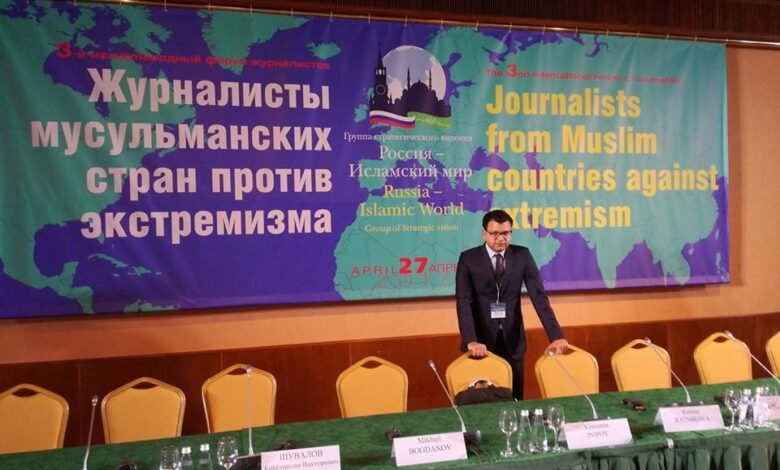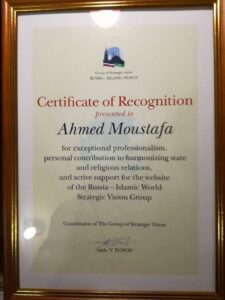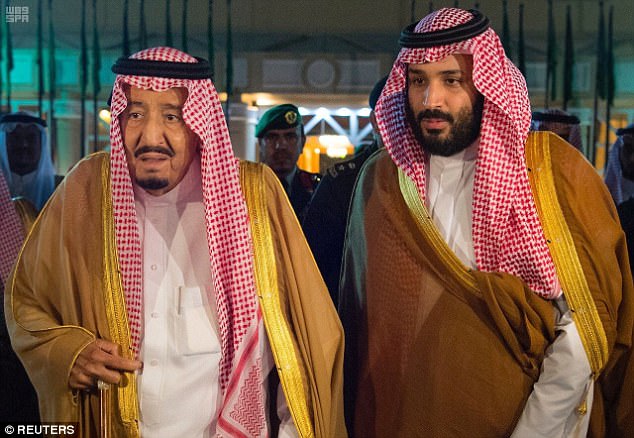
Ahmed Mostafa writes
The Crocus Mall Terrorist Incident in Moscow the day before yesterday sent shockwaves throughout the city and the world, serving as a stark reminder that terrorism remains a constant threat to global security. Despite efforts made by governments and security agencies to combat terrorism, this tragic event serves as proof that it never truly disappeared.
The global failure to effectively identify and combat terrorism is a complex issue due to various factors. The nature of terrorism makes it difficult to identify and prevent, as terrorist groups often operate in secrecy and target vulnerable areas. The constantly evolving tactics and technologies used by terrorists also make it difficult for governments and intelligence agencies to accurately assess potential threats.
Another factor contributing to the failure in terrorism identification is the lack of coordination and cooperation among different countries. Political and ideological differences can hinder the exchange of vital information and efforts in identifying and stopping terrorist activities. Addressing the root causes of terrorism, such as poverty, inequality, and political grievances, is also crucial for effective identification and prevention. However, tackling these complex societal issues requires significant political will and resources.
The use of advanced technology and social media platforms by terrorists has made it increasingly difficult to identify and monitor their activities. The widespread accessibility and anonymity of social media platforms make it difficult for authorities to track and intercept potential threats.
Lastly, there is a lack of effective measures in identifying and preventing radicalization, particularly among vulnerable individuals who may be manipulated and radicalized by extremist ideologies. The spread of misinformation and hate speech online has also contributed to the radicalization of individuals, making them vulnerable to extremist beliefs and actions.
Terrorism and its economic impact globally:
A- Is there an estimate of the economic cost of global terrorism in the last 20 years?
Terrorism has a significant economic impact, but estimating its economic cost is a complex task. Direct costs include immediate financial losses, such as property damage, human life loss, and medical expenses, which can be easily quantifiable. Indirect costs, on the other hand, are harder to measure but can have a significant impact on the economy, such as disruptions to business activities, loss of foreign investment, and decline in consumer and investor confidence.
These costs can lead to job losses, decreased production, and a slowdown in economic growth. Intangible costs, such as the psychological and emotional effects on individuals and society, are a challenging aspect of estimating the economic cost of terrorism. The fear and trauma caused by terrorist attacks can have long-lasting effects, affecting productivity and overall well-being. The cost of implementing security measures and anti-terrorism strategies also contributes to the economic burden.
Over the last two decades, the world has witnessed a significant increase in terrorist attacks, particularly in regions such as the Middle East, South Asia, and Africa. According to the Global Terrorism Index, the economic impact of terrorism in 2020 was estimated at $16.4 billion worldwide. This includes direct costs of $5.22 billion and indirect costs of $11.1 billion. In the United States alone, the total economic cost of terrorism was estimated to be over $ 1 trillion in the last two decades, with the majority of it being indirect costs.
Moreover, the economic cost of terrorism goes beyond immediate financial losses and can have long-term implications. The disruption of global supply chains and the rise of protectionism in trade and investment due to the fear of terrorism can lead to a slowdown in economic integration and international cooperation. This can have a detrimental effect on developing countries, hindering their economic growth and development.
B- Terrorism is a main part of the shadow economy
Terrorism is a global threat that has been fueled by the shadow economy, which includes activities such as human trafficking, drug and arms smuggling, money laundering, and tax evasion. Terrorist groups use the shadow economy to fund their activities, as they require funds for recruitment, training, weapons, and logistics that traditional financing methods cannot provide. They generate large amounts of money through illegal activities like drug trafficking and extortion.
The anonymity and lack of oversight in the shadow economy make it difficult for law enforcement agencies to track and disrupt terrorist financing. Terrorist groups also exploit vulnerabilities within the system, such as hawala money transfer systems and cryptocurrencies and prepaid cards, to fund their operations discreetly. The exploitation of individuals within the shadow economy is a major factor in perpetuating terrorism, as human trafficking is a lucrative business for terrorist groups. This not only fuels the growth of the shadow economy but also perpetuates the cycle of violence and instability in regions where terrorism is prevalent.
C- How much is the cost of mercenaries and hybrid wars worldwide?
The cost of mercenaries and hybrid wars worldwide is a contentious issue due to various factors. The recruitment and training of mercenaries can vary greatly depending on the country and organization involved. Governments may contract private military companies, while rebel groups and non-state actors may rely on local recruitment and training. Advanced technology and weaponry, such as drones and cyber warfare systems, also contribute to the overall cost of a hybrid war. Additionally, the use of propaganda and disinformation campaigns also requires significant funds to sustain.
The involvement of foreign powers can significantly impact the cost of a hybrid war, as they may provide weapons, training, and aid, leading to a proxy war situation that escalates the conflict and prolongs its duration. The economic impact of a hybrid war, such as infrastructure destruction, displacement of civilians, and disruption of trade and commerce, also has significant financial consequences for the countries involved.
The estimated cost of a single hybrid war can range from billions to trillions of dollars. The ongoing conflicts in Syria, Ukraine, and Yemen have caused immense destruction and incurred exorbitant costs for both sides, resulting in countless lives lost and devastated communities.
West’s main problem is misunderstanding Russia and the Orient in General
The West’s misunderstanding of Russia and the Orient is rooted in a long history of colonialism and orientalism, where the West has viewed these regions as exotic and inferior, leading to a lack of understanding of their complex histories, religions, and social systems. This has resulted in harmful stereotypes and a failure to consider the perspectives and opinions of those in these regions. This misunderstanding has had significant consequences for relations between the West and these regions, leading to damaging policies and actions, and escalating tensions.
One of the main reasons for this misunderstanding is the narrative of the ‘Other’ created by the West, which exaggerates perceived differences in religion, culture, and politics, often without a deeper understanding of the complexities and nuances of these cultures. Additionally, one-dimensional stereotypes in Western media and popular culture have further cemented negative perceptions of these regions.
To address this issue, the West must actively strive towards a more nuanced and accurate understanding of these regions, acknowledging historical and cultural biases, seeking diverse perspectives, and promoting a two-way dialogue and mutual respect between the West and these regions. The West must also recognize and address the damaging effects of their actions and policies on these regions, including the impact of colonialism, imperialism, and cultural appropriation, and actively work towards reparations and a more equitable global order.
The Significance of Resuming Russia and Islamic World Dialogue
The terrorist incident in Moscow, which claimed the lives of innocent civilians, underscores the global issue of extremism and terrorism. The Russian government’s ongoing investigation reveals the danger of extremist ideologies and groups posing a significant threat to the entire world. To counter these threats, efforts must be made to relaunch the Counter-Extremism Dialogue between Russia and the Islamic World, a platform for Muslim countries to discuss ways to combat extremism and promote tolerance and understanding.
The Russia-Islamic Dialogue on Combating Extremism, initiated by President Putin in 2005, aimed to address the root causes of extremism, such as poverty, marginalization, social media digitization, and lack of education and opportunity. However, subsequent editions have been delayed due to geopolitical tensions and conflicts. The tragic events in Moscow serve as a wake-up call for the urgent resumption of this important platform.
Renewing dialogue to combat extremism in the Islamic world will strengthen ties between Muslim countries, send a message of solidarity, and provide a platform for discussing best practices and strategies in combating extremism and promoting tolerance within Muslim communities. It is crucial that representatives from non-Muslim countries also participate in the dialogue, as extremism and terrorism are global problems that require a global response.
Renewal dialogue will also provide insight into the complexities and nuances of extremist ideologies, the role of social media and the Internet in the spread of radicalization, and develop effective measures to counter this dangerous trend. By bringing together people from different countries, cultures, and backgrounds, dialogue can facilitate the exchange of ideas and experiences, promoting mutual respect and understanding.
Culture, Economic Empowerment, and Inclusion are the Proper Treatment of Terrorism
Terrorism is a global concern, with constant threats and attacks causing loss of lives and property destruction. Various approaches have been used to address this issue, including military interventions and intelligence operations. However, recent discussions have focused on the potential of culture, economic empowerment, and inclusion as effective treatments for terrorism.
Culture refers to the beliefs, values, and customs shared by a particular group, and it plays a significant role in shaping an individual’s identity and sense of belonging. Terrorist groups often exploit cultural differences to recruit and radicalize individuals, so promoting a culture of tolerance, understanding, and acceptance could act as a deterrent. This could be achieved through education, intercultural dialogue, and respect for diversity.
Economic empowerment is another potential solution to terrorism, as poverty, lack of opportunities, and unemployment are major factors driving individuals towards extremist groups. By creating economic opportunities and promoting growth in areas vulnerable to radicalization, individuals may be less vulnerable to terrorist organizations’ promises. Economic empowerment programs can also help rehabilitate former terrorists and provide alternative income sources, promoting social stability and economic development.
Inclusion, particularly of minority groups, is crucial in addressing terrorism. Marginalized communities often feel neglected and discriminated against, leading to discontent and alienation, which can lead to extremist ideologies. Promoting inclusion and equal opportunities can help individuals feel more connected to society and less likely to turn to violence and terrorism.
In conclusion, The failure to effectively combat terrorism globally is due to various factors, including changing terrorist tactics, lack of cooperation, root causes, advanced technology, social media, and inadequate measures to prevent radicalization. To combat terrorism, a comprehensive approach from all countries is needed, including addressing the economic cost of terrorism, addressing the shadow economy, and strengthening regulations to prevent funds flow to terrorist organizations. The cost of mercenaries and hybrid wars is complex, involving recruitment, training, advanced technology, foreign involvement, and long-term consequences. The West’s relationship with Russia and the Orient is a problem, and a deeper understanding and mutual respect are needed to break free from this cycle. The Crocus terrorist incident underscores the need for global cooperation in combating extremism, and dialogue between Russia and the Islamic world is crucial for promoting tolerance and peace. Recognizing the role of culture, economic empowerment, and inclusion in addressing terrorism is also essential.




